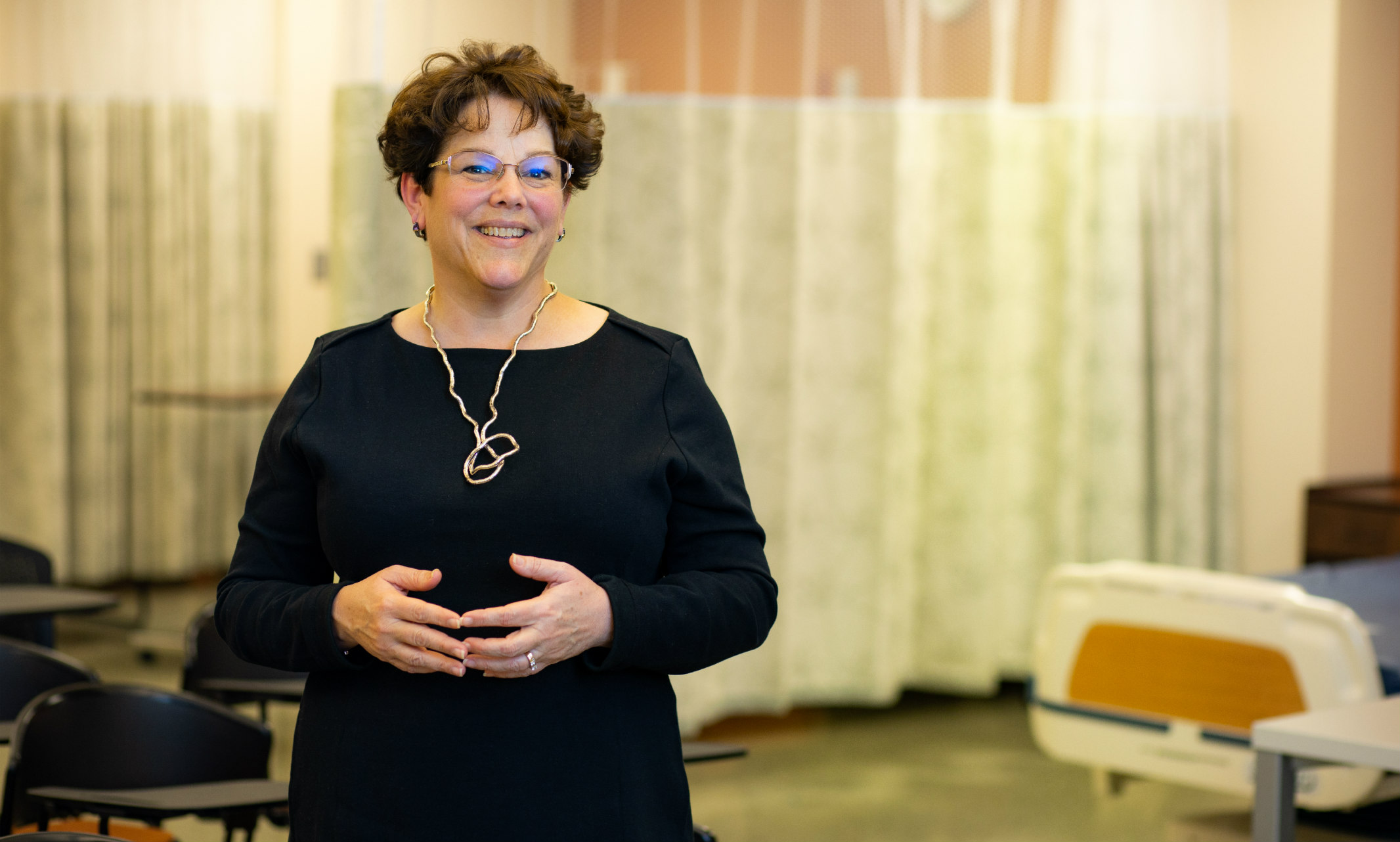Ever think about giving up a few hours for CPR training? You never know how important they can be.
That’s what Joy Roberts, interim dean at the UMKC School of Nursing and Health Studies, learned first-hand this month when her CPR skills were called to action.
Roberts and her daughter were attending a museum fundraiser in Columbia, Missouri. Her daughter, a Mizzou student studying textiles, was among those presenting artwork at the event.
While the crowd viewed the displays and mingled with refreshments, Roberts suddenly heard a loud crash, thinking someone had knocked over a table. But her daughter could see that a man had collapsed. “Mom,” she said, “you need to get over there.”
“With the holiday season right around the corner, I would encourage people to think about giving the gift of a CPR class to loved ones. As I know first-hand, it could really turn into the gift of life for someone else.”
Roberts described the scene as chaotic, with people literally screaming and unsure of what to do. She reached the man at the same time as another patron was coming to help. That woman said she was an ICU nurse.
“Good,” Roberts said, “because I’m an old ICU nurse.”
The man had no pulse, no circulation and was not breathing. Roberts performed mouth-to-mouth and the other nurse did chest compressions. “When you’re in the thick of something like that, you have no sense of time,” said Roberts, who couldn’t guess how long they worked on the man.
Finally, he took a few breaths and they got a faint pulse – a sign it’s time to stop CPR. The man was still unconscious but was moving air on his own. Soon, emergency personnel arrived and transported him to a hospital. His current condition is unknown.
Fortunately, the delegation of duties worked out well for the two of nurses.
“She was quite a bit younger so it was probably for the best that she handled compressions,” Roberts said. “And I talk a lot, so I have a big oxygen capacity.”
As a nurse practitioner, Roberts has been called to scenes where her CPR skills were needed and she had access to other medical equipment. But this was the first case where she was armed with only her knowledge of CPR. And in this situation, it appeared the two nurses were the only patrons in the group that knew how to perform the life-saving procedure.
Roberts says it was unclear if the museum had an automated external defibrillator (AED), a portable device that can diagnose and treat life-threatening cardiac events. But she encourages people to note if and where their building has an AED -- and to learn how to use it.
“Knowing CPR is something that was really instilled in me at an early age. It’s such an important skill to have.”
Studies have shown that children as young as 9 can learn and retain CPR skills. Roberts was ahead of the curve, having her first CPR class when she was just 7 years old, part of her hometown’s community CPR training following the drowning of a local high school student.
“When you’re 7 and say, only 40 pounds, it’s not easy getting that mannequin’s lungs to go down,” she said.
Roberts took the training again in high school as a required class, something she hopes catches on in more districts across the country.
According to the American Heart Association, more than 350,000 emergency-medical-services (EMS)-assessed out-of-hospital cardiac arrests occur annually in the United States. Of that group, only 46 percent receive the immediate care needed before professional help arrives. “Knowing CPR is something that was really instilled in me at an early age,” said Roberts. “It’s such an important skill to have.”
Inspired by this experience, both her daughter and a UMKC faculty member have already signed up for CPR training - and the UMKC School of Nursing and Health Studies is training its students, faculty and staff Dec. 19. Roberts is encouraging other people and employers to do the same.
“With the holiday season right around the corner, I would encourage people to think about giving the gift of a CPR class to loved ones,” she said. “As I know first-hand, it could really turn into the gift of life for someone else.”
Be a Life Saver
The following groups provide CPR and other life-saving training:
- American Heart Association
- American Red Cross
- The YMCA
- In addition to these groups, many cities may offer these types of trainings. Contact your local municipality for more information.

